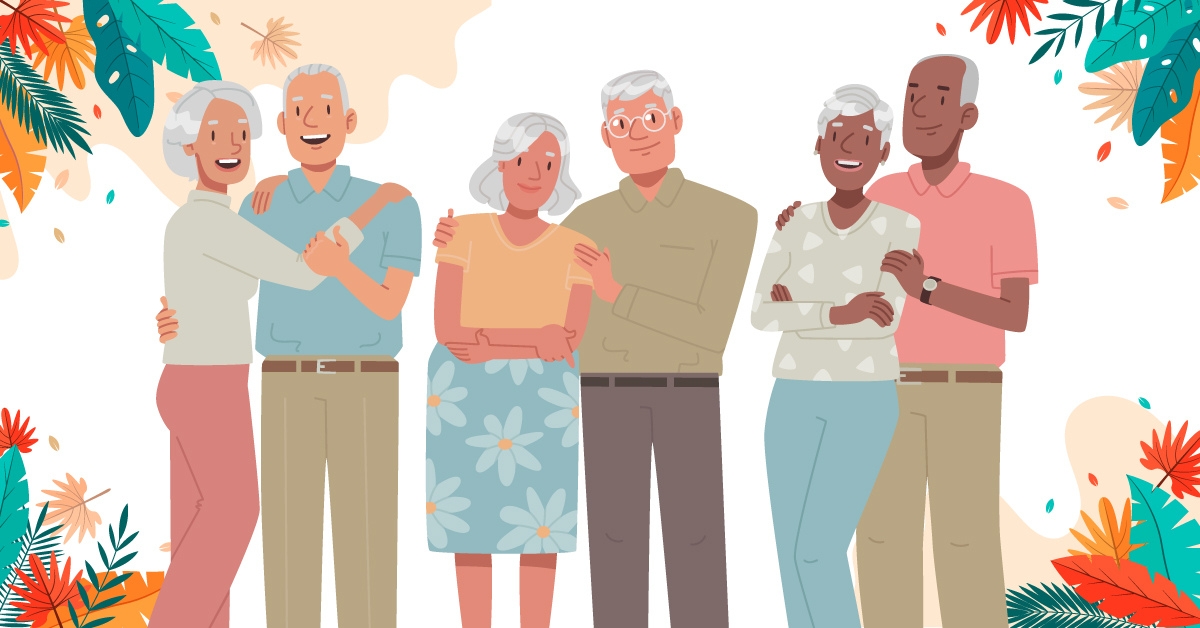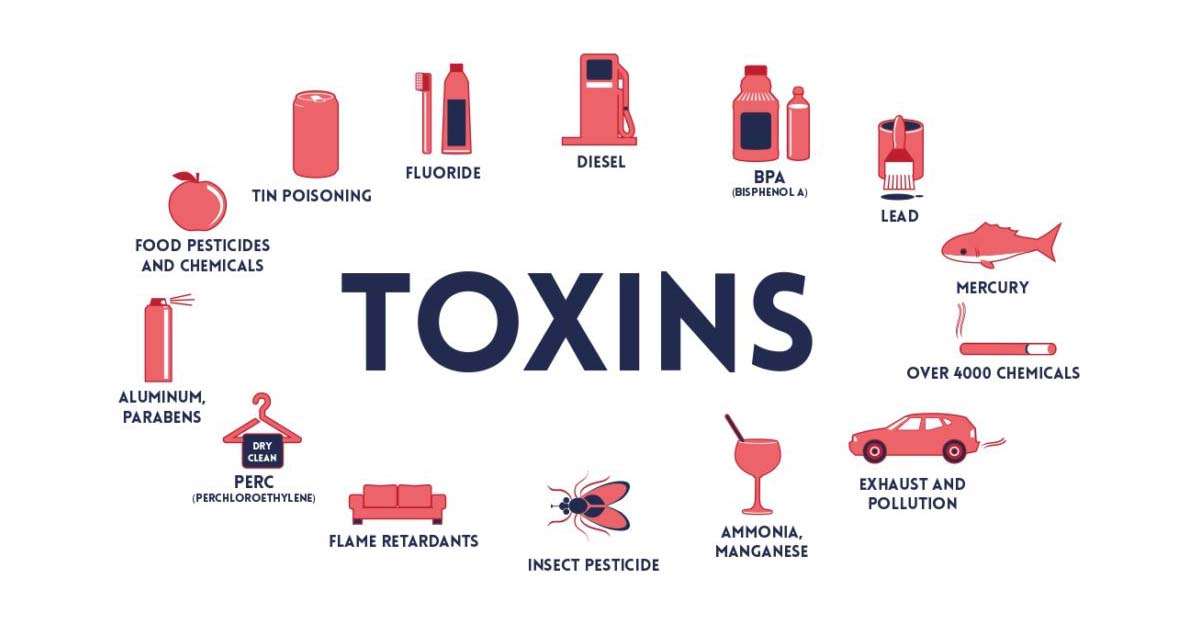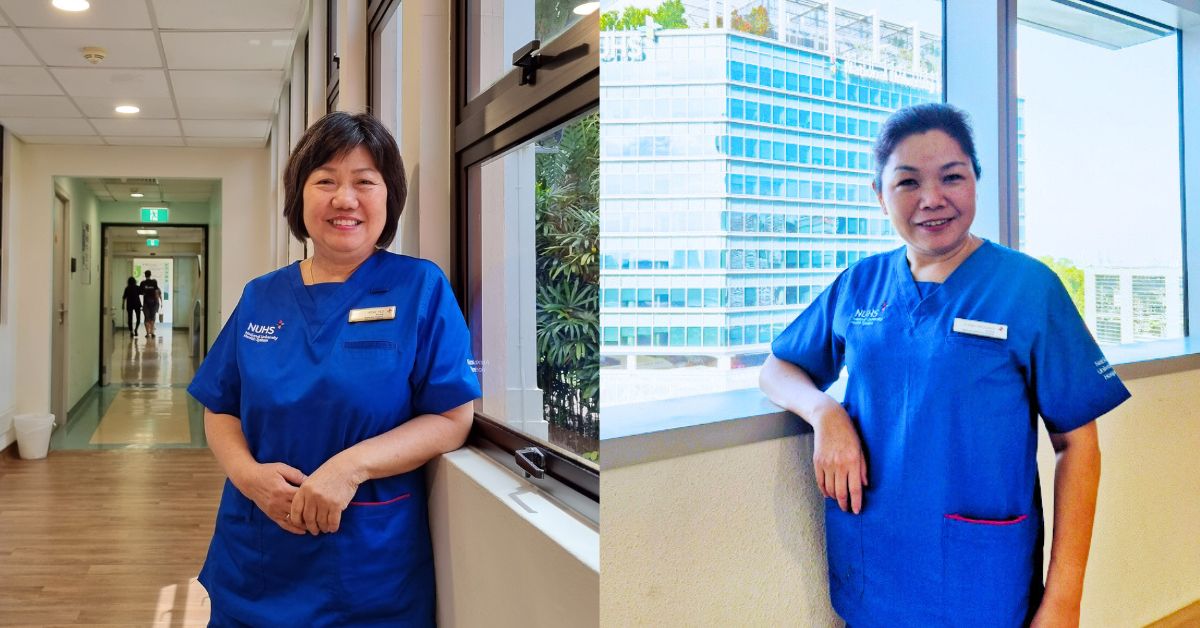
When it comes to healthcare workers, doctors have always gotten the lion’s share of glory, leaving nurses, who form the backbone of hospitals and clinics across the world, overlooked and underappreciated. Therefore, it’s only right that we celebrate their contributions to Singapore on Nurses’ Day.
Commemorated here annually on 1 August – instead of the global norm of 12 May, Florence Nightingale’s birthday – it is done so as a nod to Singapore’s own nursing history.
In case you didn’t know, our very first nurses were in fact not supplied by our British colonial rulers, but instead were nuns from a local French convent who supported the work of doctors at the General Hospital beginning 1 August, 1885.
In the 139 years since that fateful day, nursing and the healthcare industry at large has evolved into something altogether different, largely thanks to novel technology and updated practices.
One thing remains steadfast in the face of change – the nurses of Singapore’s dedication to serving others at the frontlines, even when the odds are stacked against them. Here’s what four nursing veterans have to say on the trials and tribulations of working in the healthcare industry in Singapore.
Advertisement
Ker Yok Tin, 74: I poured my heart and soul into nursing for 51 years
Ker Yok Tin was raised in a kampong in Jurong, where she’d often see her father ferrying midwives to and from the clinic whenever her neighbours were in need.
I loved the kampong spirit and felt in awe whenever I saw nurses in their clean white uniforms and dreamt of wearing them one day,
says the 74-year-old.
And so she did, right after she completed her O-Levels and all the way till today, more than half a century later.
I poured my heart and soul into nursing for 51 years, which is a long time and surprises even myself,
says the senior enrolled nurse at Ng Teng Fong General Hospital, whose journey through the Singapore healthcare system includes shifts at Tan Tock Seng Hospital (back when it was called Toa Payoh Hospital), Alexandra Hospital and Khoo Teck Puat Hospital.
I was a nurse in the Emergency Department for 40 years and have witnessed countless incidents that can be considered the happiest and saddest moments in a person's life. I have gone through two pandemics, SARS and COVID, and have seen how brave and resilient nurses are,
she adds.
"And I have encountered moments etched deeply into my soul."
One of these “unforgettable incidents” was the catastrophic 1978 Greek tanker explosion at Jurong Shipyard, where Yok Tin, then a 28-year-old nurse, “grappled with attending to badly burnt patients and comforting grieving families” in the wake of the chaos.
This experience sealed my commitment to always be a pillar of comfort to my patients in their physical adversities,
she says.
Today, having received the prestigious Tan Chin Tuan Nursing Award in 2020 (recognising outstanding nurses committed to advancing the profession) and the 50-year Long Service Award last year, Yok Tin remains committed to sticking with nursing for as long as she can, despite already being in her mid-70s.
People ask why I am so loyal? I asked why not? We are treated fairly, there are growth opportunities, and in 2015, I had the flexibility to balance work and personal life, and transitioned to part-time work,
says the nurse, who also doubles up as a preceptor for junior staff, earning her the nickname "Mama Ker".
After more than five decades, as I look back, I am grateful for a journey so extraordinarily fruitful and fulfilling,
she adds.
Irene Yeo, 68: Nursing is never boring
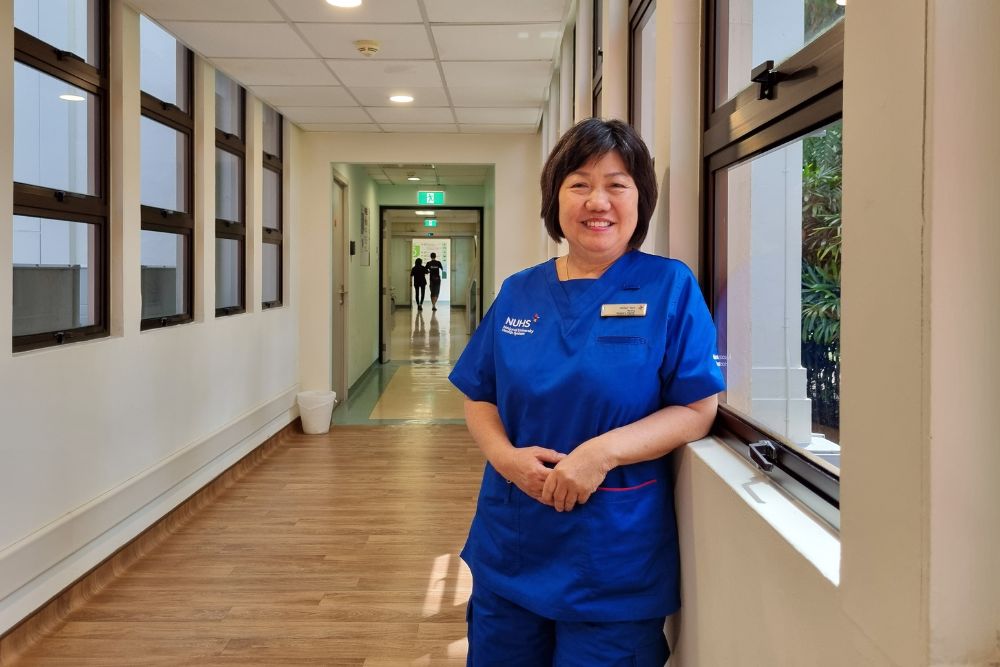
Like Yok Tin, Irene Yeo fulfilled her “childhood ambition” when she donned her “very impressive” white uniform as a newly graduated nurse back in 1977 – and hasn’t looked back since.
Nursing has been my one and only job,
beams the 68-year-old, now a senior nursing manager at Alexandra Hospital after navigating the healthcare system in Singapore at NUH, as well as abroad in the United Kingdom.
Along the way, she developed community wellness projects, helped hospitals transform to snag international healthcare awards, and worked in the various departments ranging from urology to obstetrics and gynaecology.
Most recently, the senior nursing manager spearheaded specialist eye and ENT (ear, nose and throat) clinics at Alexandra Hospital, before leading a work group using data-driven insights to reduce falls, which can pose one of the biggest dangers to already frail patients.
But even with close to 50 years under her belt, Irene still remembers her roots in the early days of nursing.
Nowadays, everything is totally different from when I first started. Last time, everything was manual. All the paperwork was on actual paper!
she says with a laugh.
"So when the doctor tells us to find a specific patient’s medical history, we would have to spend a lot of time digging through drawers and folder to find that specific file. It's completely different now thanks to e-filing systems."
Back then, we even recycled syringes – so part of our work was to wash and sterilise the syringes to use on the next patient. There were no such things as disposable syringes. You can't even imagine it now,
she adds.
While these improvements and innovations went a long way in moving “time and energy back to what matters, which is the patients”, they weren’t able to completely eliminate the rigorous nature of the job.
Nursing demands everything from you, physically and mentally. It’s a heavy responsibility, as a mistake can cause harm to patients. So you need to work very fast, no matter what, and try your best always. When we’re stretched, you won't even feel like taking your lunch properly as you’d feel responsible for the patients – so we often eat lunch until the end of our shift,
explains Irene.
They're trying all sorts of ways to make the working environment better, and to increase the pool of healthcare workers. But we’re all tapping from the same pool, and with our population growing and ageing tremendously, it will tax the healthcare system even more,
she adds.
While “continuously training and developing talent” is one way for the healthcare industry to keep up with demand, Irene also hopes that more people will step into nursing.
I would always talk to my friends to try and bring them into nursing. I will say that the job is very interesting. Nursing can be routine, but it is never a boring job, as no two patients are the same,
she says.
"And of course, it's also very rewarding."
As the silver nurse approaches her 70s, she hopes to continue working for “as long as [she’s] needed”.
I've enjoyed nursing – every single part of it.
Says Irene,
Zhang Meixiang, 56: Patients can see your warmth in your smile
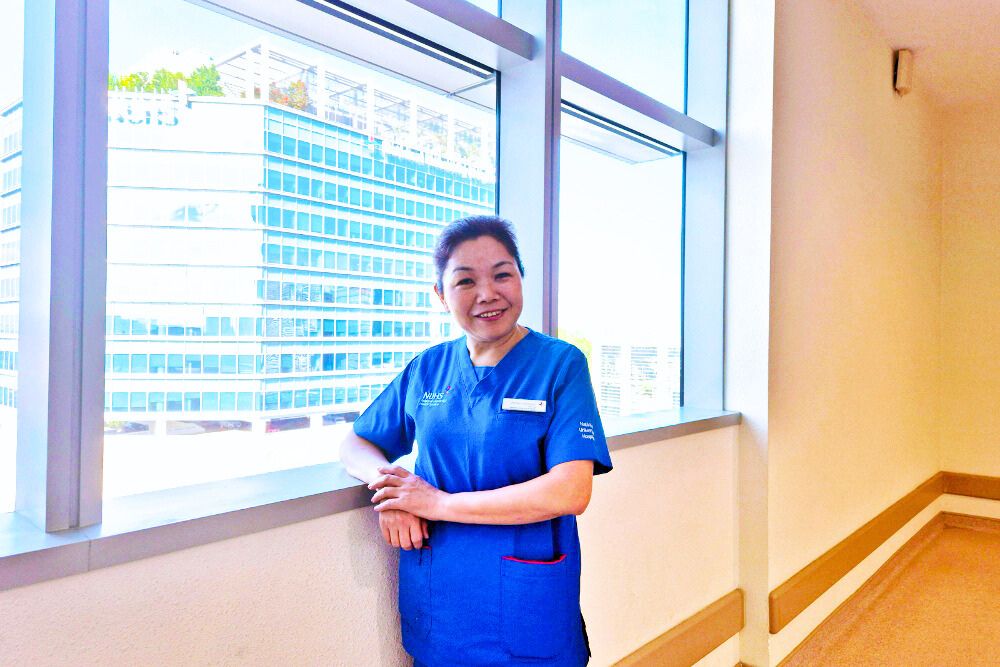
Every day, before Zhang Meixiang comes in to work as an assistant nurse clinician at the National University Hospital (NUH), she tunes into an English listening test for half an hour.
It’s not that her English skills aren’t up to scratch – after close to two decades living in Singapore, the China-born nurse’s command of the language is impressive – but more an expression of her commitment to continually improve her communication skills.
After all, the 56-year-old is working in the human immunodeficiency viruses (HIV) programme at NUH’s Multidisciplinary Infectious Disease Clinic (MDIC), where a major aspect of her nursing now involves talking to, and understanding the problems of, patients from “multiple cultures, different ages, different genders and different sexual orientations”.
I have to open my mind and embrace all the differences that people might have so I can understand their situations and provide them with the best care I can,
says the nurse.
It was a huge departure from her previous nursing experience of over 20 years at the emergency department in NUH and back in China before that, though it was a challenge that Meixiang took up with open arms.
My mother always told me, ‘Love is the best teacher’. Passion for being a nurse came from the bottom of my heart. Without passion, I wouldn’t be a nurse for 40 years,
she says.
"Where there is a will, there’s a way."
And indeed, the way seems bright for Meixiang to continue doing what she loves. She just received the Nurses’ Merit Award, recognising her exceptional performance in MIDC as NUH’s only specialist nurse.
The healthcare worker is currently pursuing a master’s degree in counselling, which she hopes she can use both now and in the future as a volunteer counsellor post-retirement – not that she has any plans to retire soon.
Do what you love, and love what you do. When you have the heart, the patients can see it in your smile. They can feel your warmth, because it comes from within.
For younger nurses, she advises,
Whenever you feel tired or overwhelmed with work, get help from others. Make sure you think critically – when doctors tell you what medication to administer, consider if it's right, have an opinion, and own your decisions,
she says.
"And always remember – we are nurses. We provide the best care for our patients, but we cannot save every patient."
This is something my old nursing manager told me years ago, and now, I'm passing it on to the younger nurses,
she adds.
Nurse Chan, 56: Helping people while working is its own reward
For Chan (not her real name), a nurse of over 30 years at Singapore General Hospital, then Tampines Polyclinic, the challenges she faced as a nurse during the Covid-19 pandemic remain fresh in her mind.
There was a lot of stress then. We were afraid of getting it even though we were wearing full PPE (personal protective equipment), but we were even more scared of passing it to our families. During those years, when I reached home, I’d go straight to shower before talking to anyone,
says the 56-year-old.
But that fear, ironically, paled in comparison to the distrust she faced from some members of the public.
When we were in public, we didn’t want anyone to know that we were nurses. We'd hide our uniforms or change, so that no one would stare or move away,
she describes.
"Even at work, people would get angry when we stuck the stickers (demarcating whether patients had a fever) on their shirts directly and start shouting at us."
These examples, though extreme, highlights the daily challenges that nurses face working long hours and irregular shifts in often difficult conditions, doing work that many consider “dirty” and certainly laborious.
Nevertheless, she takes the difficulty of her chosen in stride.
Tiring is normal. Stress is everywhere – it's just how you take it,
she says.
I love nursing, that's why I chose this job. It's tough, but it's fulfilling. You are able to help people while working – isn’t that good?
In any case, she says,



